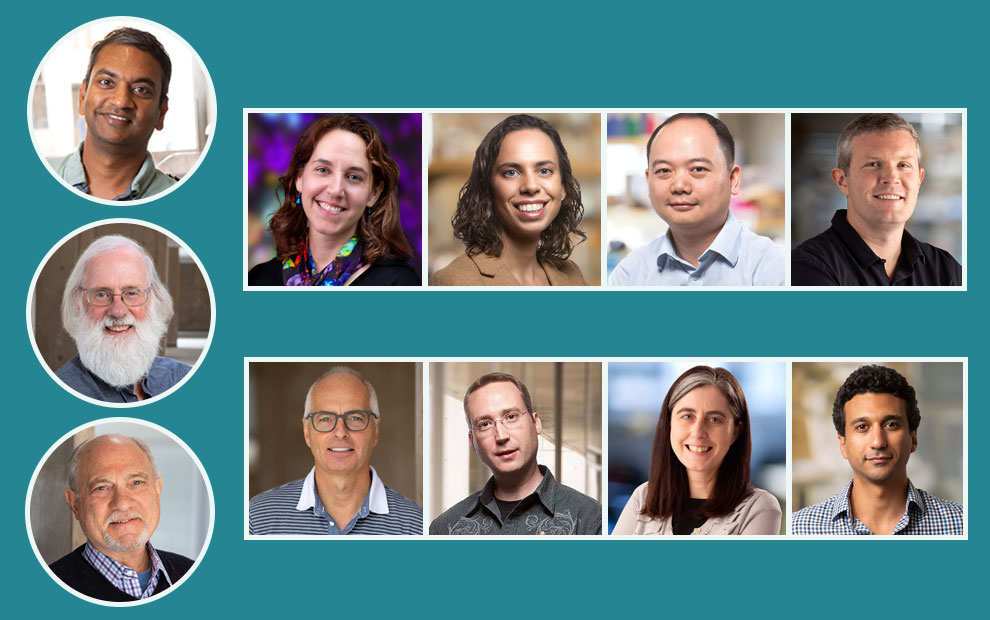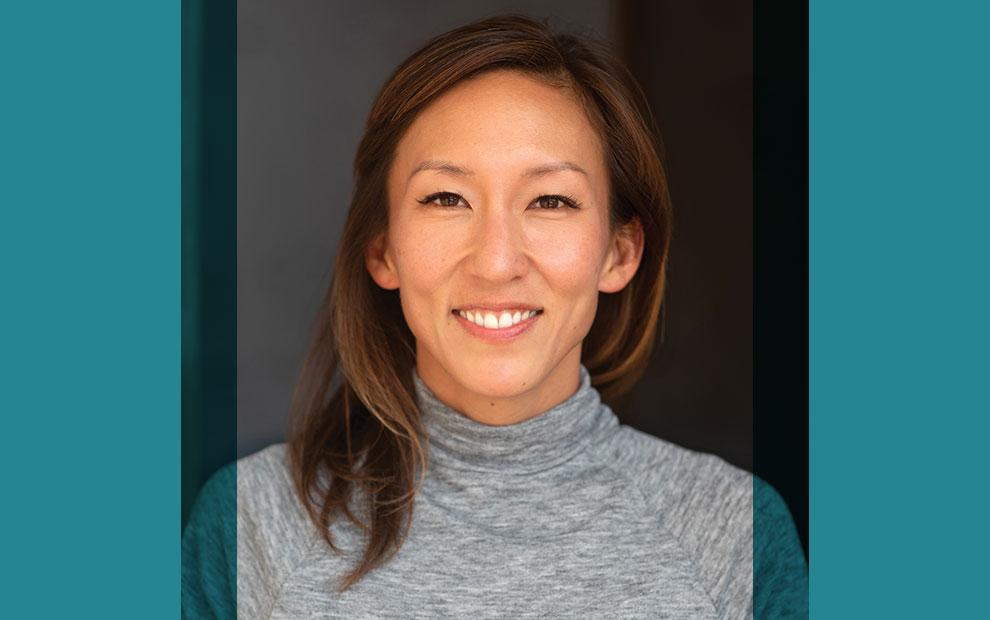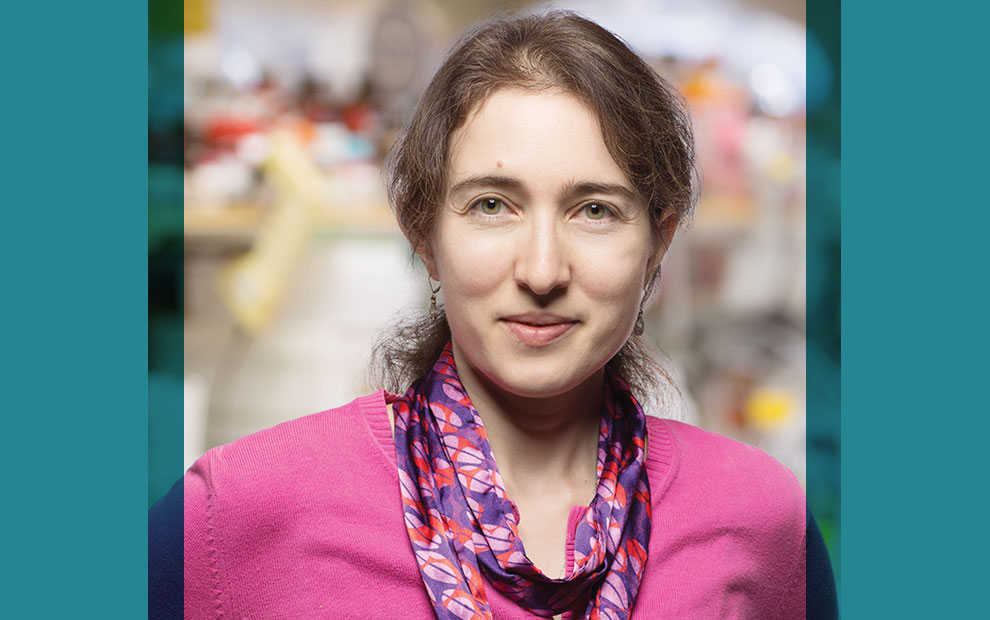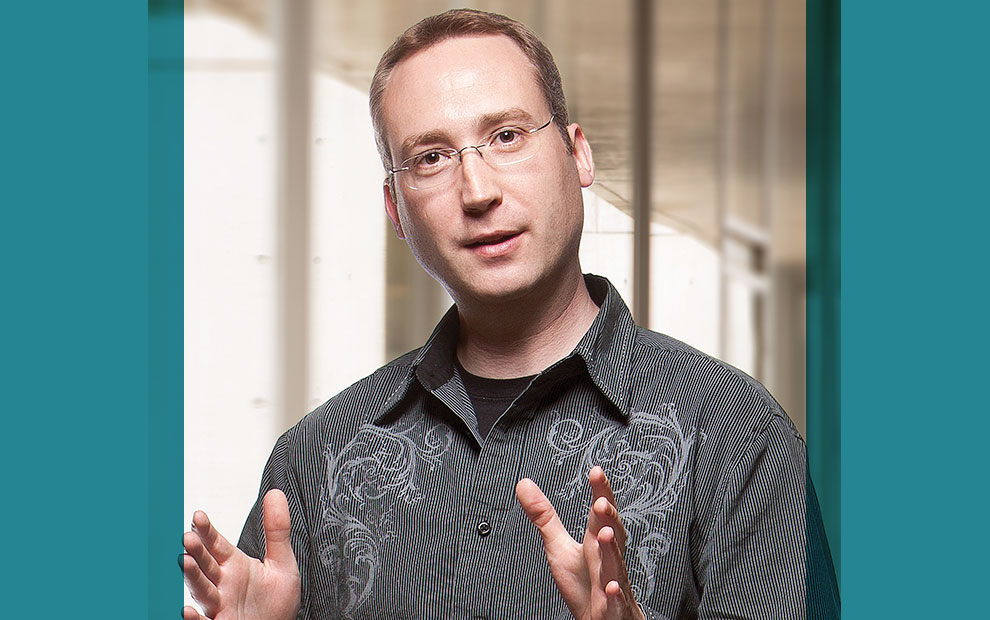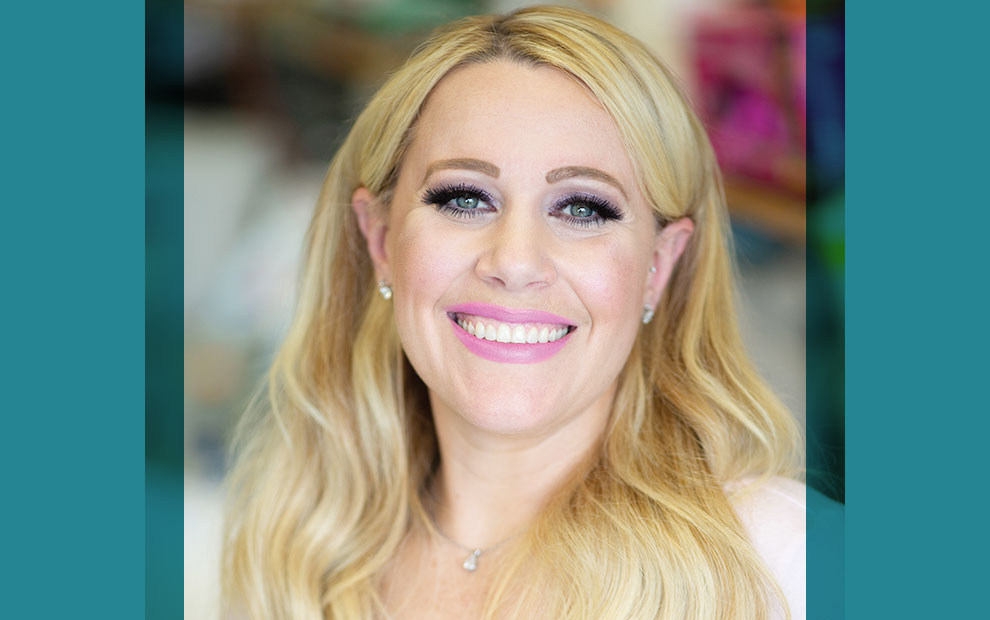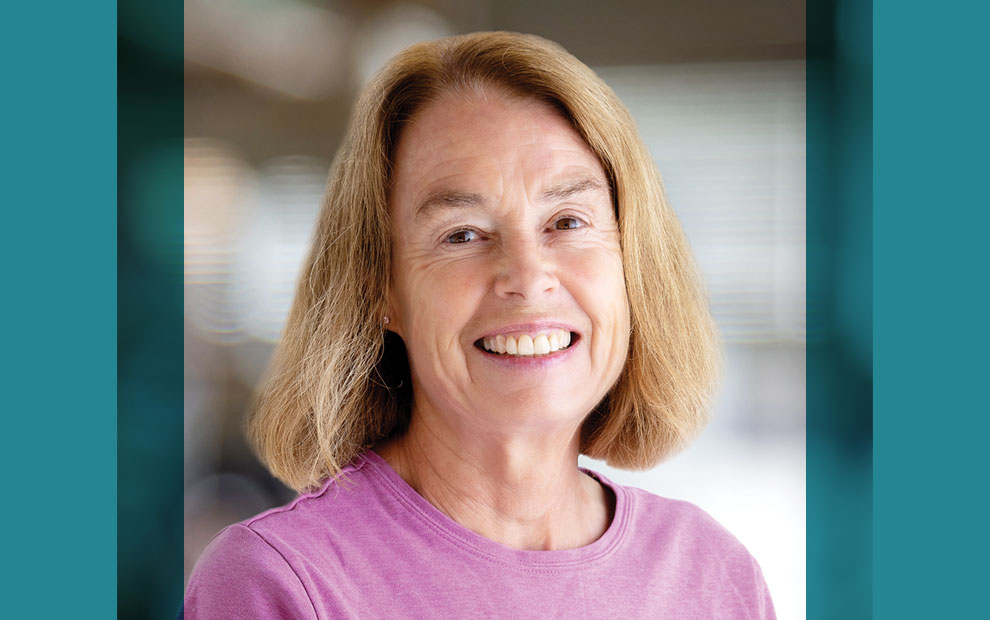Thanks to the forward-thinking minds of longtime Salk supporters Irwin and Joan Jacobs, every year since 2009 Salk’s Innovation Grants Program has rewarded out-of-the-box ideas that hold significant promise but may not yet have the track record to attract funding from more traditional sources.
With awards given semiannually by peer review, Salk’s Innovation Grants Program is critical for catalyzing emerging science with the power to redefine the future. Since its inception, the program has prompted a host of discoveries. The most recent class of recipients are evidence of the continued impact Innovation Grants awards have on Salk research.
Congratulations to all the 2021 winners!
Sreekanth Chalasani
The Chalasani lab is seeking to understand how animals make decisions. Associate Professor Sreekanth Chalasani and graduate student Jess Haley will use a novel microscopy system to record the activity of most, if not all, neurons in the C. elegans “brain” as it learns, remembers and makes decisions. They will discover neuronal changes associated with each of these three phenomena (learning, memory and decision-making), providing a framework for analyzing more complex brains.
Tony Hunter
RNA Polymerase III (Pol III) mutations cause hypomyelinating leukodystrophy (HMLD), a fatal neurodegenerative disease caused by defective CNS nerve myelination. In yeast, conserved Pol III HMLD disease mutations cause growth defects, which are rescued by inhibiting the sumoylation pathway. Professor Tony Hunter’s lab will investigate if Pol III mutant-derived neurodegenerative phenotypes are recapitulated in human neural cells and in animal models, and, if so, how the sumoylation pathway contributes to such phenotypes. This could implicate sumoylation as a target for rescue of Pol III-related neurodegenerative diseases.
Geoffrey Wahl
Intercellular interactions activate signaling pathways and cause phenotypic changes. The Wahl lab suspects such interactions contribute to cancer metastasis, a deadly killer of cancer patients, yet there are no methods to track the constellation of cells that a cancer cell interacts with in the metastatic niche. Professor Geoffrey Wahl, Postdoctoral Fellow Nikki Lytle and Project Scientist Leo Li will develop Contact Tracing, an innovative tool to indelibly label interacting cells for subsequent identification, isolation and analysis. This may reveal cellular relationships that drive metastatic progression.
2021 Collaboration Grants
The Collaborative Grants provide critical seed funding to large, bold ideas involving three or more Salk investigators.
Aging is associated with dysfunctional immune responses, but no one knows the initiating events behind these processes. Professor Susan Kaech, Associate Professors Diana Hargreaves and Ye Zheng and Assistant Professor Jesse Dixon believe epigenetic influences are particularly vulnerable to age and that many of the age-related changes in immune function and inflammation stem from epigenetic dysfunction. The scientists will determine the effects of age on these factors during a viral infection, identify key features in aging-associated decline in immunity, and facilitate efforts to improve immune response in older patients.
ALS is hallmarked with delayed adult onsets at unpredictable sites followed by devastating and progressive spread. Professor Samuel Pfaff, Associate Professors Axel Nimmerjahn and Nicola Allen, and Assistant Professor Eiman Azim believe that disease onset is accelerated or triggered by secondary environmental insults. An understanding of these environmental interactions could lead to avenues that would delay ALS onset, so the scientists are investigating how genetic models of ALS react to these environmental insults, which will begin to define how genetic predisposition and secondary environmental events converge to trigger ALS.

















































